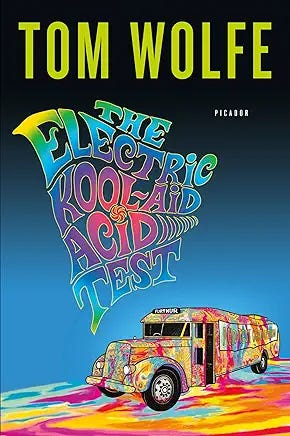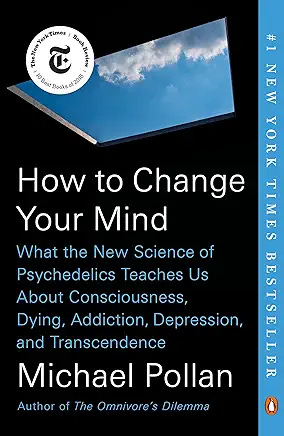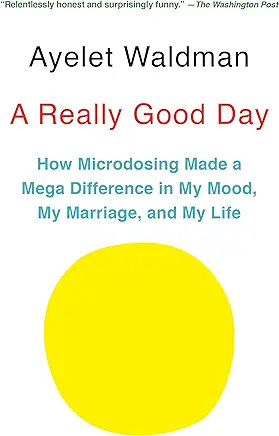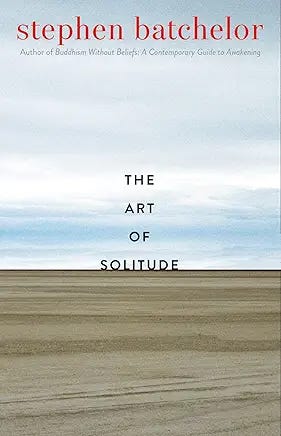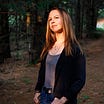Jennifer Keishin Armstrong's Books for People Interested in Psychedelics
Plus a playlist of the week's best new albums, interviews with Molly McGhee & John Darnielle, Liz Phair on 30 years of Exile in Guyville, an excerpt from Edward Carey's new novel, and more
Occasionally, I will host book and music lists by authors and musicians on the newsletter. This week’s guest list is from Jennifer Keishin Armstrong, author of So Fetch: The Making of Mean Girls, The Women Who Invented Television, Seinfeldia, and others:
I’m an author who writes books about pop culture history, and for the past several months on my Substack Culture Trip, I’ve been exploring the intersection between pop culture and another interest of mine, psychedelics. These consciousness-altering substances have had a significant impact on culture, from Native American chants to the Beatles to Kacey Musgraves, from The Monkees to Sesame Street, from Easy Rider to Knocked Up. As psychedelics go more mainstream, and studies showing their therapeutic qualities push more states toward legalization, it’s worth understanding their inner workings as well as their impact, whether you’re interested in partaking or not. Books are the perfect way to do that.
Here are a few I recommend to get started on your own literary psychedelic trip:
The Electric Kool-Aid Acid Test
Tom Wolfe’s rollicking, funny, reported account from within Ken Kesey’s band of “Merry Pranksters,” a group with a quasi-religious dedication to doing LSD and spreading the good word about it, helped to define what people thought about the 1960s hippie movement at the time, and how it would be remembered. In the 1968 masterpiece of New Journalism, Wolfe rides along with Kesey (a successful novelist who wrote One Flew Over the Cuckoo’s Nest) and his acolytes in a multicolored bus called Furthur, traveling the country and interacting with the likes of the Grateful Dead, Allen Ginsberg, and the Hells Angels. Wolfe manages to take Kesey’s mission seriously while still illuminating the humor and silliness of many of the characters and situations.
Michael Pollan covers much of psychedelic history in this 2018 bestseller, which is widely credited for helping to bring psychedelic practice back into the mainstream, this time as a practical, scientifically backed solution to mental health problems. In it, he traces psychedelics’ roots with indigenous cultures, their pop culture heyday first as a potential panacea and then as a hippie scourge in the 1960s, to their resurgence as a great (and widely studied) hope for the future. Crucially, Pollan also methodically tries several of the substances himself and shares his own experiences with them, helping the masses to understand exactly what a trip might be like and making it feel safer to try for the average reader. Pollan told me in an interview that he’s seen even more willing acceptance of psychedelics’ potential than he anticipated, because, he postulates, “we’re desperate … we have a mental health crisis, and the tools we have to deal with it are just failing us, the pharmaceutical tools. So there's an openness on the part of psychiatry to psychedelics that I don't think you would see otherwise. I thought there'd be a lot of mainstream resistance to psychedelics, and I did not encounter that at all. I mean, people were just like ‘no, bring it on, we need some new tools.’”
Ayelet Waldman makes the modern psychedelic movement even more personal in her 2017 memoir of microdosing LSD to combat a long-standing mood disorder. Because Waldman is a well-known writer (who’s also married to a well-known writer, Michael Chabon), her willingness to share both her struggle and the technically illegal solution is significant. Her account is funny, vulnerable, and accessible.
Buddhist author Stephen Batchelor shares vignettes from his own experiences of solitude, as well as thoughts on being alone from Montaigne and Buddhist philosophy. What’s interesting is that Batchelor doesn’t consider solitude literally; his solitude is often in the company of others, whether at a Buddhist meditation retreat or, quite frequently, while practicing with psychedelics. Solitude, for him, is about turning inward, not about who’s in the room. Through several accounts of using psychedelics for spiritual growth, he underlines the fact that this work is always, at its core, individual, but that we can reach out to others for comfort, support, and community. We’re always alone, but we can still often be together.
A Playlist of the Week’s Best New Albums (15 albums, 132 songs, 9 hours and 11 minutes)
This week’s best new music includes albums from Snail Mail, bar italia, Marnie Stern, Atka, Hotline TNT, Ian Sweet, Melenas, Mo Dotti, Matmos, William Eggleston, and much more.
Largehearted Likes:
Largehearted Links:
“It Was Minutely Personal”: Liz Phair Looks Back on 30 Years of Exile in Guyville
Melissa Broder on her new novel
I see loss and grief as very akin to being lost in the desert. It can seem endless. We’re not in control. Nature or the nature of the emotional landscape is in control.An interview with John Darnielle
What are some things that strike you as corny?Any hint of self-pity. I don’t want people in my songs to seem enamored of their own pain, or to think that they’re special. And in that way, the characters are me: I’m not special and my pain isn’t special.
The Makings Of A Literary It Girl
Literary It Girls may have the standard markers of what we think of when we think of an It Girl: they’re beautiful, stylish, and social, with a certain je ne sais quoi. But what really makes them influential is the creative ways they stage and elevate their work — both on the page and in persona.Molly McGhee on her debut novel
Our childhoods are the cornerstone of our existence. How we begin is the foundation which we build our lives upon. All my work comes out the core of my being. In my core I am southern, so I think it is fair to say that my relationship with the South is fundamental to the way I create.
Last Week’s LHB Feature Posts:
A.D. Nauman’s playlist for her novel Down the Steep
Chris L. Terry & James Spooner’s playlist for their anthology Black Punk Now
Claire Lordon’s playlist for her graphic novel One in a Million
Erin Pringle’s playlist for her story collection Unexpected Weather Events
Jody Hobbs Hesler’s playlist for her story collection What Makes You Think You’re Supposed to Feel Better
Kristine Langley Mahler’s playlist for her essay collection A Calendar is a Snakeskin
Matthew Fiander’s playlist for his novel Ringing in Your Ears




